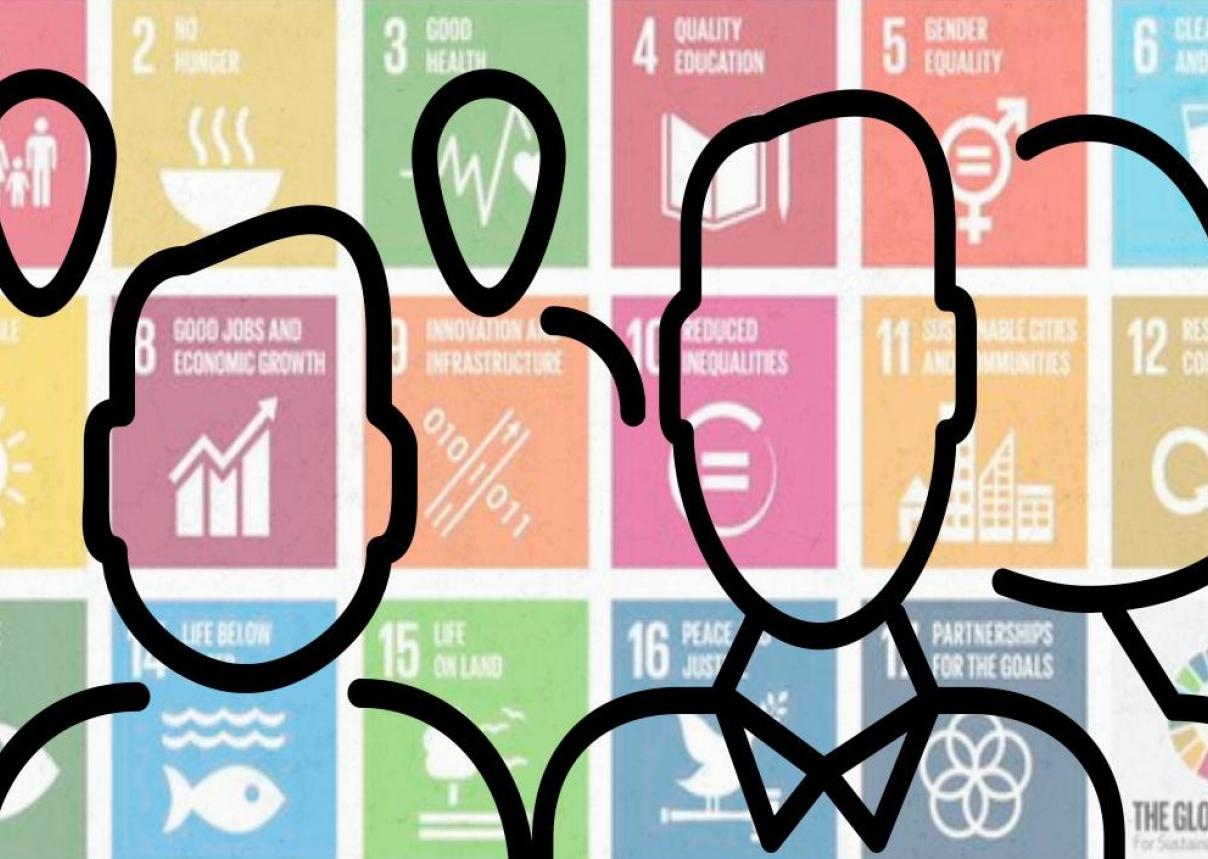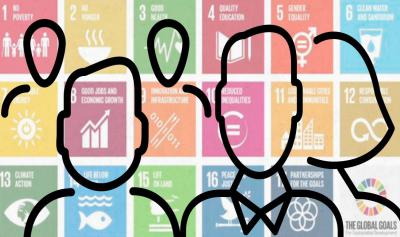
 David Souter comments each week on an important issue for APC members and others concerned about the Information Society. This week’s blog is about the need for more recognition of ICTs in sustainable development.
David Souter comments each week on an important issue for APC members and others concerned about the Information Society. This week’s blog is about the need for more recognition of ICTs in sustainable development.
‘Sustainable development’ is the UN’s current watchphrase. Last year, the General Assembly agreed the 2030 Agenda for Sustainable Development, a ‘plan of action for people, planet and prosperity,’ with associated goals and targets, to guide international development policy for fifteen years.
The Agenda’s ethos isn’t new but stems from the first UN Earth Summit in 1992. At its heart is the principle that economic prosperity, social equity and environmental sustainability hang together; that sustainable development can only be achieved if they are intertwined; that we can’t have one without the others.
The 2030 Agenda succeeded the Millennium Development Goals (MDGs), which held sway from 2000 to 2015, but it’s much more ambitious. Where the MDGs were targeted – 8 goals and 18 targets – the Sustainable Development Goals (SDGs) are comprehensive – 17 goals and 169 targets. Where the MDGs focused on poverty reduction in developing countries, the SDGs address a far wider range of development issues for all countries.
While there’s broad support for the Agenda, there are also doubts – about whether so many goals can be pursued effectively at once, particularly in Least Developed Countries (LDCs); about the capacity of governments and international agencies to measure more than 200 indicators which have been adopted by the UN Statistical Commission. A subject for a later blog.
So what about the Information Society?
My theme today, though, is how these SDGs relate to ICTs. The UN General Assembly’s WSIS+10 outcome document, last December, committed the international community to ‘harness’ the ‘crosscutting contribution’ of ICTs for SDG delivery. That call’s been repeated in other international statements. The problem is: there’s very little about ICTs or the Information Society in the 2030 Agenda, and the WSIS outcome document fails to spell out how to integrate the two.
True, the Agenda acknowledges that ICTs have ‘great potential to accelerate human progress, to bridge the digital divide and to develop knowledge societies.’ But there are more words about sport in its main text than there are about the Information Society. Only one of 169 targets is concerned with access to ICTs, and only three more mention them as aids to progress (in women’s empowerment, higher education and technological innovation). Only six of more than 200 indicators directly measure them.
Fostering ‘a sustainable Information Society’
That seems surprising but it reflects a longstanding gap in perceptions between the mainstream development and ICT4D communities. For twenty years, ICT experts’ enthusiasm for ICTs’ ‘transforming power’ has not been matched by their incorporation in sustainable development policy and practice. Plenty of rhetoric, but far too little analysis or engagement with the Information Society’s relevance to those three pillars of sustainable development – economic prosperity, social equity and environmental sustainability.
Last year, the UN Division on Economic and Social Affairs (DESA) held an ‘expert group meeting’ to address this problem by ‘advancing a sustainable Information Society for all.’ Its background paper described the challenges and suggested some responses. What should diverse stakeholders be doing to foster integration between ICTs and SDGs? Three approaches emerged from that discussion.
Making a matrix to support interventions
One has been put forward by staff facilitating WSIS Action Lines in diverse UN agencies. They’ve devised a matrix which juxtaposes Action Lines and SDGs, looks for synergies between them, and points to interventions that might help to progress both.
It’s a useful exercise but it has limits. Most important: it’s a very siloed way of looking at the Information Society. What can ICTs do, it asks, for education? What impact will cybersecurity (or insecurity) have on trade? It focuses, too, on interventions – what governments and other development actors can do with ICTs – rather than the underlying impact that ICTs are having on economy, society and culture.
Understanding systemic changes in society
The International Institute for Sustainable Development proposed a different approach a few years back – when the role of ICTs failed to gain traction at the third Earth Summit in 2012, a meeting convened to review progress on sustainable development over the previous twenty years.
The bigger impact of ICTs on development, IISD argued, came not from government programmes and projects but from the underlying changes which ICTs were making in the ways that governments, businesses and citizens behave and interact. An Information Society could not be understood by looking just at silos of activity, like e-health, e-commerce or e-learning. On the contrary, an Information Society – in particular, a ‘people-centred’ Information Society, the goal of WSIS – could only be understood by considering ICTs’ impact on underlying structures of economy, society and culture – what people did with them and what they did to people.
These changes, IISD continued, had already profoundly altered the parameters and meaning of sustainable development by 2012. And they were poised to do so more. Indeed, the ever-growing sophistication and pervasiveness of ICTs meant their impact on economy, society and culture would be more profound as each year passed. Sustainable development – development which worked for the future – would be shaped by the evolving Information Society irrespective of whatever interventions came from governments and development institutions.
Monitoring and measuring
The third impact is more specific. ICTs, obviously, can help to measure progress towards the SDGs. Big data has, particularly, been commended for this purpose. But here, too, there’s cause for caution.
We need to measure progress most in Least Developed Countries (LDCs). They have the weakest evidence base and the weakest data-gathering infrastructure, so big data looks like it could make a powerful difference. But LDCs also have the most unequal rates of participation in the Information Society. Big data analysis can only ever be as good as the data which it uses. In unequal societies it can skew findings, and policy, towards the wrong conclusions and the wrong targets, paying more attention to the better-off who generate more data than to the poor who have different developmental needs.
So what to do?
Right now, we’re nowhere near the level of integration between ICTs and SDGs that’s needed for the next decade. So what to do? My starting point is that much more, and more sophisticated, attention should be paid to the dynamic interplay between the Information Society and sustainable development: to how ICTs are reshaping our societies – redefining economic prosperity, social equity and environmental sustainability – both today and in the future. Only then will we be properly equipped to intervene – both to meet the problems ICTs pose and to take advantage of the opportunities they offer. Which is the bigger, long-term, challenge identified in the WSIS review.
Next week’s blog will look at the experience of ICT4D so far, through the lens of 2016’s World Development Report on Digital Dividends.
 David Souter is a longstanding associate of
David Souter is a longstanding associate of